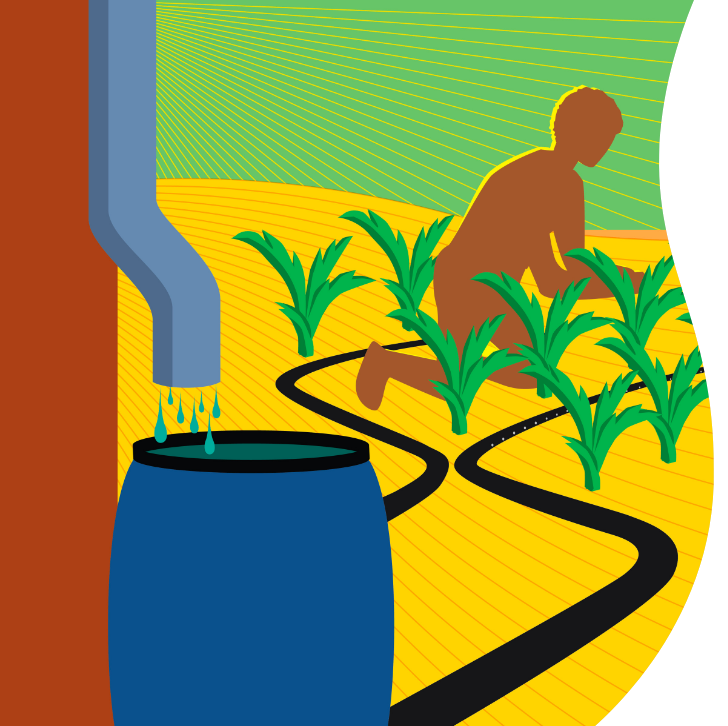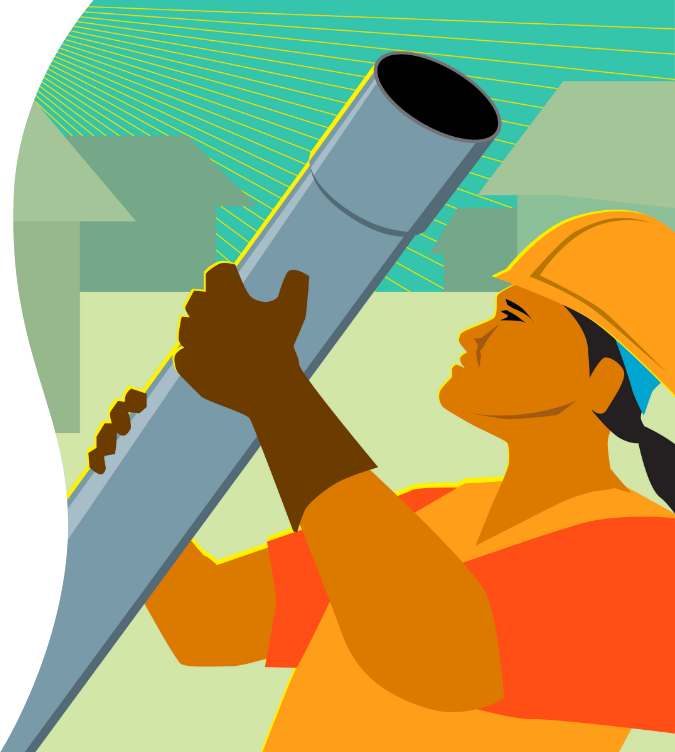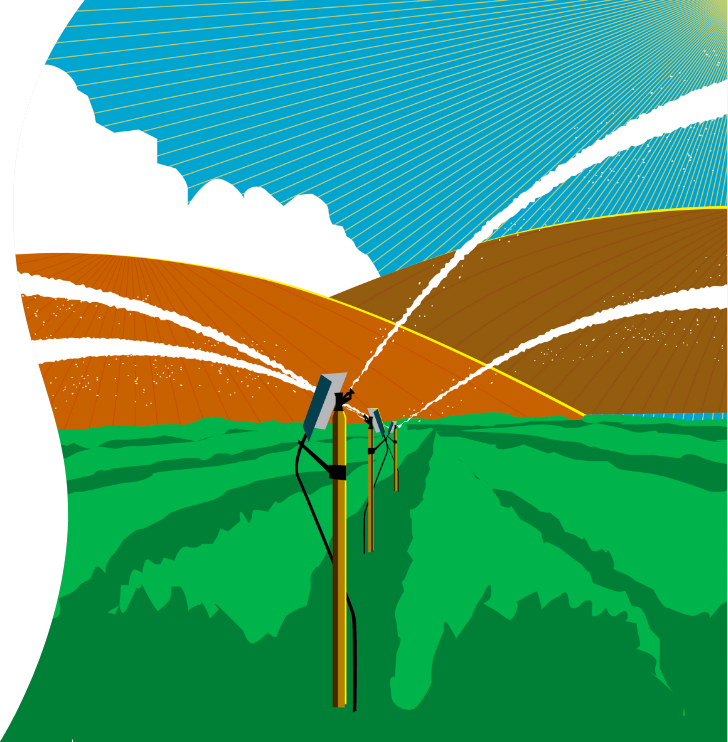
We have a once-in-a-generation opportunity to reinvest in more just and equitable water systems that build resilient communities and create family-wage jobs.

Scroll on to see examples of water at work across the United States.

Most of America’s water infrastructure was built 50+ years ago and is reaching the end of its useful life.
Today, less than 10% of capital spending on water comes from the federal government, shifting the burden to local governments and ratepayers.

Over the next 15 years, Denver Water is replacing all lead service lines to people’s homes. In 2020, this program supported nearly 300 jobs from local contractors to construction management and outreach.
Today, 6 – 10 million families drink water pumped through toxic lead pipes. Lead is dangerous at any level, especially for kids and pregnant people. Replacement programs protect public health while creating jobs for construction workers, pipefitters, and plumbers.

Protecting clean water at the source creates jobs, too! According to American Rivers, every dollar spent restoring forests and floodplains generates $2.50 in economic activity.
Trout Unlimited Colorado and partners – including Grand County and Northern Water – plan to restore a mile-long channel connecting the Colorado River around the Windy Gap Reservoir. The project will create engineering and construction jobs while helping native trout and protecting drinking water from wildfire debris.

In 2018, Spanish Fork, Utah provided its 40,000 residents free smart irrigation, saving money and water while putting professional installers to work.
The West is locked in megadrought. Investing in water efficiency makes communities more drought-resilient, protects the future of farming, and creates new business opportunities for smart irrigation suppliers and installers.

Louisville residents benefit from new job opportunities through the Metropolitan Sewer District’s capital investments program. In 2020, these investments created 1,200 jobs, including more than 50 different skilled trades jobs like boiler makers, pipefitters, bricklayers, carpenters, and truck drivers.
As the need for water workers grows, so does the importance of making water careers accessible to underrepresented and lower-income communities. Targeted recruiting and training creates jobs and rebuilds local economies.

In Cincinnati, Groundwork Ohio River Valley’s Green Corps program provides paid workforce development opportunities for young people to gain experience with sustainability careers like designing and installing green infrastructure.
Environmental justice is social justice. We can work with nature, not against it, and show up for communities impacted by historic disinvestment and climate change. Swapping pavement for plants and protecting the forests that feed our rivers reduces flooding and pollution while cleaning and cooling the air.